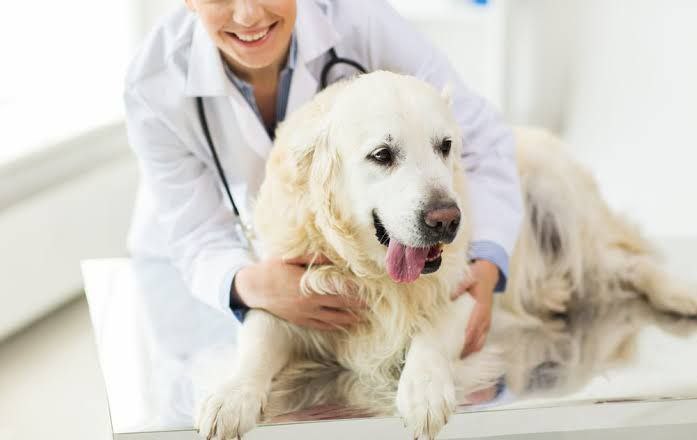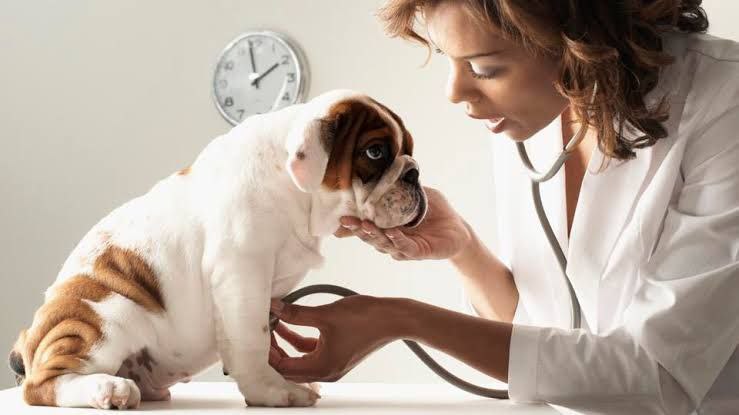why is my dog shaking and throwing up
When your dog is shaking and throwing up, it can be concerning and may indicate an underlying health issue. Several potential causes can contribute to these symptoms. While it’s important to consult with a veterinarian for a proper diagnosis, here are some possible explanations and considerations:why is my dog shaking and throwing up
Potential Causes of Shaking and Throwing Up in Dogs
- Gastrointestinal Issues
- Dogs may experience vomiting due to various gastrointestinal problems, such as gastritis (inflammation of the stomach lining), gastroenteritis (inflammation of the stomach and intestines), dietary indiscretion (eating something inappropriate), or gastrointestinal obstructions.why is my dog shaking and throwing up
- Toxicity or Ingestion of Harmful Substances
- Ingesting toxic substances, including household chemicals, certain plants, medications, or foods that are toxic to dogs, can lead to vomiting and shaking. It’s important to identify and remove any potential toxins from your dog’s environment.why is my dog shaking and throwing up
- Motion Sickness or Car Anxiety
- Some dogs may experience motion sickness or anxiety during car rides, leading to nausea, vomiting, and shaking. These symptoms can often be managed through desensitization training or with the guidance of a veterinarian.why is my dog shaking and throwing up
- Infections
- Infections, such as viral or bacterial infections, can cause digestive disturbances and result in vomiting and shaking. Common examples include parvovirus, distemper, or infections of the gastrointestinal tract. why is my dog shaking and throwing up
- Intestinal Parasites
- Parasites, such as roundworms, hookworms, or giardia, can lead to gastrointestinal issues, including vomiting and shaking. Regular deworming and preventive measures can help reduce the risk of parasite-related problems why is my dog shaking and throwing up
- Metabolic Disorders
- Certain metabolic disorders, such as kidney disease, liver disease, pancreatitis, or diabetes, can affect a dog’s digestive system and lead to vomiting and shaking.
Immediate Actions to Take

If your dog is shaking and throwing up, it’s important to take immediate action to ensure their well-being:
- Monitor Your Dog’s Condition
- Observe the frequency and severity of the vomiting and shaking. Note any additional symptoms or changes in behavior, as these details can help your veterinarian with the diagnosis.why is my dog shaking and throwing up
- Provide Access to Fresh Water
- Make sure your dog has access to fresh water to prevent dehydration. If they can’t keep water down, consult your veterinarian for guidance on managing their hydration.
- Withhold Food Temporarily
- To allow your dog’s digestive system to rest, withhold food for a few hours after the last episode of vomiting. Then gradually reintroduce small, bland meals recommended by your veterinarian.why is my dog shaking and throwing up
- Contact Your Veterinarian
- If your dog’s condition persists, worsens, or is accompanied by other concerning symptoms, contact your veterinarian for professional advice. They can evaluate your dog’s overall health, conduct diagnostic tests if needed, and provide appropriate treatment.why is my dog shaking and throwing up
When to Seek Veterinary Care
While some cases of shaking and vomiting may resolve with home care, certain situations require immediate veterinary attention. Contact your veterinarian or seek emergency care if your dog exhibits any of the following:why is my dog shaking and throwing up
- Severe or Prolonged Symptoms
- If the vomiting is persistent, frequent, or severe, or if your dog’s shaking becomes uncontrollable, it indicates a potentially serious underlying condition requiring veterinary evaluation.why is my dog shaking and throwing up
- Dehydration
- Signs of dehydration include dry gums, sunken eyes, lethargy, and reduced skin elasticity. If you suspect dehydration, seek veterinary care promptly.
- **Bloody Vomit or Diarrhea
When to Seek Veterinary Care

- Bloody Vomit or Diarrhea
- If you notice blood in your dog’s vomit or diarrhea, it could indicate a more serious condition, such as gastrointestinal bleeding or a gastrointestinal ulcer. Seek immediate veterinary attention in such cases.
- Persistent Lethargy or Weakness
- If your dog becomes increasingly lethargic or weak, it may indicate a severe underlying illness that requires prompt veterinary evaluation.
- Abdominal Pain or Distension
- If your dog shows signs of abdominal pain, such as reluctance to move, whining, or a distended abdomen, it may indicate a potentially serious condition that should be assessed by a veterinarian.why is my dog shaking and throwing up
How To Treat Vomiting at Home? | Vomiting dog?
Preventive Measures and Long-Term Care
To help prevent episodes of shaking and vomiting in your dog, consider the following preventive measures and long-term care:
- Maintain a Healthy Diet
- Feed your dog a balanced and appropriate diet recommended by your veterinarian. Avoid sudden changes in their diet and refrain from feeding them table scraps or foods that may be harmful to dogs.why is my dog shaking and throwing up
- Prevent Access to Harmful Substances
- Keep all potentially toxic substances, including medications, chemicals, and certain foods, securely stored and out of your dog’s reach.
- Regular Veterinary Check-ups
- Schedule routine check-ups with your veterinarian to monitor your dog’s overall health, address any underlying conditions, and maintain preventive care, such as vaccinations and deworming.why is my dog shaking and throwing up
- Proper Parasite Control
- Follow your veterinarian’s recommendations for regular parasite prevention, including internal and external parasite control.
- Reduce Stress and Anxiety
- Minimize stressful situations for your dog and provide them with a safe and comfortable environment. If your dog experiences car anxiety or motion sickness, consult your veterinarian for strategies to help alleviate their symptoms.
- Promptly Address Changes in Behavior or Health
- Pay attention to any changes in your dog’s behavior, appetite, or overall well-being. If you notice any abnormalities, contact your veterinarian for guidance.
Remember, the information provided is not a substitute for professional veterinary advice. If your dog is shaking and throwing up, it’s best to consult with a veterinarian who can conduct a thorough examination, provide an accurate diagnosis, and recommend appropriate treatment for your furry companion.
Preventive Measures and Long-Term Care
To help prevent episodes of shaking and vomiting in your dog, consider the following preventive measures and long-term care:
- Provide a Stress-Free Environment
- Minimize stressors in your dog’s environment and provide them with a calm and secure space. Avoid sudden changes, loud noises, and exposure to stressful situations.
- Proper Diet and Feeding Routine
- Feed your dog a high-quality, balanced diet that meets their nutritional needs. Establish a regular feeding routine and avoid overfeeding or feeding them foods that may trigger digestive upset.why is my dog shaking and throwing up
- Food and Water Safety
- Ensure that your dog’s food and water bowls are clean and free from contaminants. Provide fresh water at all times and monitor the quality of their food to prevent spoilage or ingestion of harmful substances.why is my dog shaking and throwing up
- Exercise and Mental Stimulation
- Regular exercise and mental stimulation can contribute to your dog’s overall well-being and help reduce stress and anxiety. Engage in activities that suit your dog’s breed, age, and energy level.
- Regular Veterinary Check-ups
- Schedule routine wellness examinations for your dog. Your veterinarian can monitor their health, detect any potential issues early on, and provide appropriate preventive care, such as vaccinations and parasite control.
- Dental Health
- Maintain your dog’s oral hygiene by brushing their teeth regularly and providing appropriate dental chews or treats. Good dental health can prevent dental diseases that may contribute to vomiting or other digestive issues.
- Avoiding Toxic Substances
- Keep your dog away from toxic substances such as household chemicals, pesticides, certain plants, and human foods that can be harmful to dogs. Be aware of potential hazards in your home and outdoor environment.
- Stress Management Techniques
- If your dog is prone to stress or anxiety, consider behavior modification techniques, pheromone products, or consult with a professional dog trainer or veterinary behaviorist for guidance on managing their stress levels.
- Prompt Veterinary Attention
- If you notice any changes in your dog’s behavior, appetite, or if they experience episodes of shaking and vomiting, seek veterinary attention promptly. Early intervention can help identify and address underlying issues effectively.
Remember, while these measures can help promote your dog’s well-being, it’s essential to consult with your veterinarian for personalized advice based on your dog’s specific needs and health conditions. Your veterinarian will provide tailored recommendations to ensure the best possible care for your beloved pet.
| Question | Answer |
|---|---|
| Why is my dog shaking and throwing up? | Gastrointestinal issues Toxicity or ingestion of harmful substances Motion sickness or car anxiety Infections- Intestinal parasites Metabolic disorders |
| What immediate actions should I take? | Monitor your dog’s conditionProvide access to fresh water Withhold food temporarily Contact your veterinarian |
| When should I seek veterinary care? | Severe or prolonged symptoms Dehydration Bloody vomit or diarrhea Persistent lethargy or weakness Abdominal pain or distension |
| How can I prevent shaking and vomiting in my dog? | Maintain a healthy diet Prevent access to harmful substances Regular veterinary check-ups Proper parasite control Reduce stress and anxiety Promptly address changes in behavior or health |
| Additional preventive measures and long-term care | Provide a stress-free environment Proper diet and feeding routine Food and water safety Exercise and mental stimulation Regular veterinary check-ups Dental health Avoiding toxic substances Stress management techniques Prompt veterinary attention why is my dog shaking and throwing up |
Read More:
